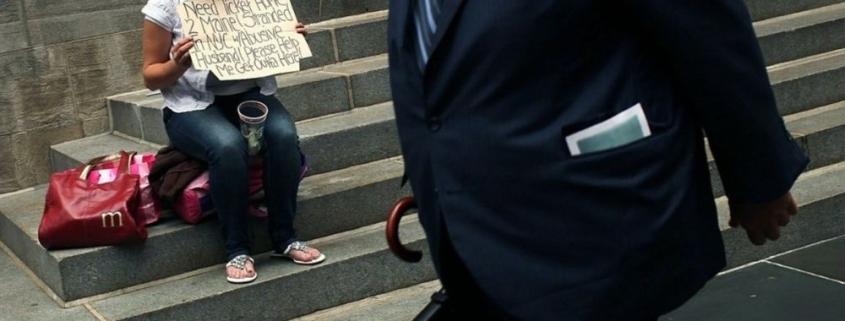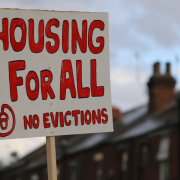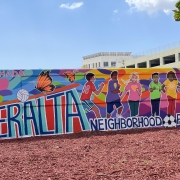Is the Business of America Really Business? Or Should it Benefit All of Society?
The business of America is business. That famous quote is attributed to President Calvin Coolidge and has held sway over our culture and our national policy for more than a century. Interrupted only by World War II and the Civil Rights movement of the 1960s, it picked up steam in the 1980s with globalization when the interests of corporate America once again became predominant. It left concerns about public health and social justice in the dust.
Certainly, some have benefited from this single-minded focus. But the truth is, most have not. For it has resulted in an ever-widening gap between rich and poor and a shrinking middle class. Since 1980, according to the Pew Research Center, the share of wealth owned by those in the upper-income level has increased from 60% to 79%, while the share owned by the middle and lower classes dropped from 32% to 17% and from 7% to 4%, respectively.
We need to understand something here. We’re not just talking about economics. Those on the wrong side of the wealth gap are suffering much more than a decline in prosperity. For them, it’s a matter of life and death. According to a study from Harvard University, poverty in America can mean substantial reductions in how long a person will live. The difference is much greater than “the two or three years you might expect,” the researchers say. It could be as many as 10 or 15 years. The average lifespan of the poorest Americans is equal to that in Sudan or Pakistan.
It’s well known that poverty affects physical health. Higher rates of heart disease, cancer, and diabetes are all leading causes of death that have been noted in low-income and minority communities. Infectious diseases are also more prevalent, as seen during the COVID-19 pandemic, with more victims living in poor or overcrowded housing. However, the impact such conditions have on mental health has proved to be even more devastating.
Imagine waking up daily in a neighborhood with dilapidated buildings, graffiti painted on every wall, trash strewn along the sidewalks, people hanging around street corners dealing drugs, and gunshots ringing out on a nightly basis. Often it would be a low-lying area, so there would be no breeze. On hot days, such as with our recent heat wave, the asphalt would soak up the sunlight, dramatically increasing the temperature. There would be no parks and little green space. Heavy industry would be nearby with pollutants lingering in the air. It would sometimes be hard to breathe. Healthcare facilities would be scarce. There would be no markets selling fresh fruits or vegetables, just convenience stores with inflated prices.
How would any of us feel living in such conditions? Angry? Frustrated? Depressed? Suicidal? The answer is all the above. According to mental health experts, inadequate housing, poor nutrition, exposure to violence and crime, and lack of healthcare are all linked to mental illness. Combined with environmental stresses such as pollution, temperature extremes, and challenging sleep environments, they inevitably lead to higher rates of depressive disorders, anxiety, psychological distress, and suicide.
Moreover, if nothing is done, the problem is likely to get worse. Studies on intergenerational wealth show that when wealth is concentrated at the top, there will be less economic mobility. This means that as the gap in wealth gets wider, low-income families will have less and less chance of pulling themselves out of poverty. So, you get a winner-take-all system in which the very few accumulate vast fortunes, and the rest are left behind, permanently stuck in a vicious cycle of hopelessness, ill health, and early death.
The good news is that it doesn’t have to be this way. In Europe both rich and poor enjoy a similar span of life, and each lives longer than their counterparts in America. The solutions are simple enough, and we are familiar with them all. They include increased access to better housing, health care, and education; financial literacy and job training; higher minimum wages and a host of other common-sense policies such as treating substance misuse as an illness rather than a crime.
First, we need to change our mindset. By buying into the zero-sum game of Corporate America, we have seen our country divided into winners and losers, a state of affairs that is neither fair nor sustainable. We need to adopt a new attitude, one that balances the interests of big business with our obligation to preserve the health and welfare of the general population. With this as a guiding principle, we should be able to retool our economic system so that it promotes widespread prosperity, benefiting all segments of society, not just the highest earners.
Author:
–IPS Editorial Board






